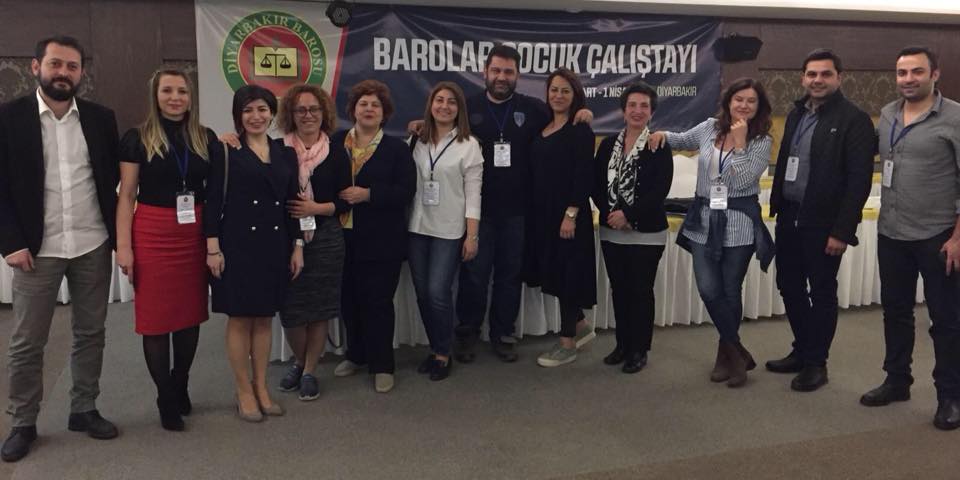When Women are Imprisoned, Their Children’s Best Interests are not Looked After

Diyarbakır Bar Association held children’s rights meeting which was joined by many representatives from the field. We interviewed Gülseren Tunç and Emrah Sahin, Member and the Vice President of Ankara Bar Association's Children Rights Center about the status of children in prisons.
What topics did you discuss in the meeting in Diyarbakır?
Gülseren Tunç: We discussed child abuse, child marriages, prevention of children, child labor, children’s judicial process and the effect of state of emergency on children.
What is the status of children in prisons?
Gülseren Tunç: There are convict children staying in correctional centers and there are also child prisoners. There is another group: children (aged between 0-6) of imprisoned mothers. Every day the numbers are changing, but recently there are approximately 700 children staying in prison with their mothers. Frankly, we are not well-informed about their conditions there. In 2005, Ankara Bar Association and Ministry of Justice signed a protocol enabling volunteer lawyers to see children in prisons. Unfortunately, that practice is not practiced anymore. We are trying to put it in process again.
Emrah Şahin: Lawyers, which we will assign to visit children prison, are trained to communicate properly with children in prisons.
Gülseren Tunç: Children in prison face so many problems. We don’t know whether they are properly nurtured or their living spaces are hygienic enough. Considering the fact that children aged between 0-3 cannot leave their mothers, options like probation, house arrest or postponement should be taken into account. Unfortunately, when women are imprisoned, their children’s best interests are not looked after.
How are the conditions in nurseries?
Emrah Şahin: I am an attorney of Children’s Rights Center. I have many cases of child abuse, peer victimization, negligence and so on. There are cases which include public officers’ negligence in the prisoners and unfortunately, most of them resulted in impunity. There are also many problems which we cannot see on media.
What kind of studies does Children’s Rights Center lead?
Emrah Şahin: We are not authorized to monitor nurseries and child protection houses of Ministry of Family and Social Policies. However, we get appointment and visit them. We only see what they want us to see. There are houses or nurseries which operate very orderly, but one of the biggest problems is we cannot know where the children older than 12 are staying. Their flats are not controllable.

Bizi Takip Edin